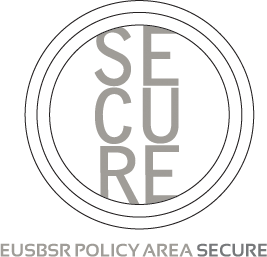20 April 2017, PA Secure team at the Council of the Baltic Sea States (CBSS) Secretariat attended a seminar on implementing the UN Sendai Framework for Disaster Risk Reduction (DRR), which today is on top of the international agenda related to managing future risks. The seminar was hosted by the Swedish Institute of International Affairs (UI), in a joint effort with the Swedish Civil Contingencies Agency (MSB). Mr. Mats Karlsson, the Director of UI, opened the session by welcoming everyone and highlighting the importance of coordination and governance related to DRR. Mr. Nils Svartz, the Acting Director General of the Swedish Civil Contingencies Agency (MSB), thereafter emphasized that effective DRR requires taking the whole society into consideration.
The panel focusing on the international perspectives was moderated by Ms. Margareta Wahlström, former Special Representative of the UN Office for Disaster Risk Reduction (UNISDR). Mr. Andrew Maskrey, Chief of the Risk Knowledge Section at the UNISDR, started the panel discussion by highlighting the importance of data; however “the problem with using historical data, is that the past is not a very good guide to the future”, and “if we want to understand where we are going, we have to use probabilistic techniques”, furthermore he put forward the Global Risk Model (GRM) as one of the tools for developing data. The second panellist, Ms. Stéphanie Durand, Director General for the Emergency Management Policy and Planning Directorate, Public Safety, Canada, emphasized the importance of understanding risks, and that we have to be prepared for the increasing numbers of natural disasters. After a disaster, she said, “we do not recover to the old normal, we recover to the new normal – because that is the essence of building back better”. Thereafter Mr. Jack Radisch, Senior Program Manager at the High Level Risk Forum at OECD, focused on the complexity of Disaster Risk Reduction; “sometimes things that are done in the name of sustainability, affects human security negatively”, meaning that trade-offs always have to be made, along with cost-benefit analyses. Ms. Margareta Wahlström concluded the session with stating that “the issue of governance is one of the top issues related to Disaster Risk Reduction”.

